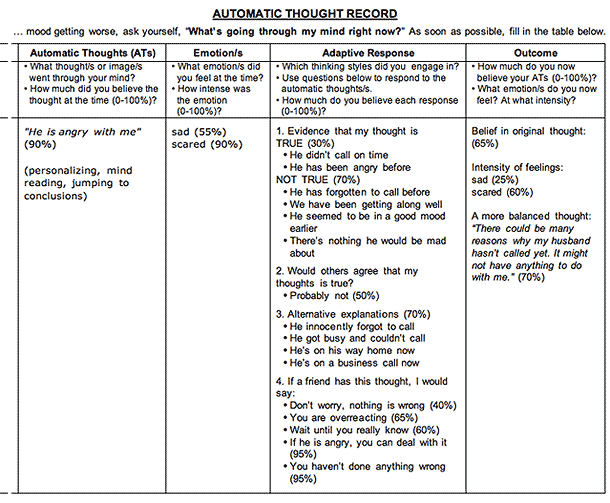Cognitive-Behavioral Therapy Workshop
Step #4: Getting Results, Changing How You Feel
As you do the work of responding to your Automatic Thoughts on your own Automatic Thought Record, you may notice your mood changing, if even slightly. For many people, just getting their thoughts down on paper and reading them back is a powerful experience. It makes a big difference to see our thoughts in a more objective manner. Sometimes, just reading what you wrote allows you to see your thoughts in a new way even before you get to the work of using strategies to modify them.
Now it's time for Helen to evaluate the results of her work. In the last column of her Automatic Thought Record (below) you see she was asked to revisit her belief in her original Automatic Thought and the intensity of her feelings. Helen recognized that she still feels some anxiety and sadness, although the intensity of them has dropped to 25 and 60 percent respectively. She also re-rated her belief in her Automatic Thought, "He is angry with me," at 65 percent. While she still has this thought, Helen's belief in it has dropped a moderate amount. Because her belief in her thought has diminished, so has the distress she initially experienced.
 After all her efforts in responding to her Automatic Thought, Helen was able to generate a more balanced thought. She wrote, "There could be many reasons why my husband hasn't called yet. It might not have anything to do with me." She subsequently rated her belief in this thought as 70 percent. Helen did a nice job evaluating her original Automatic Thought in a fair, objective manner. Her narrow focus on the belief that her husband was angry with her led Helen to feel needless distress at a time when she really had no practical information about the situation.
|

